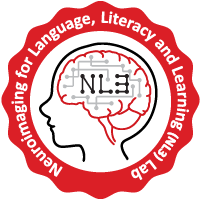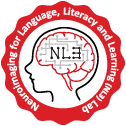
The NL3 Lab starts a new study of the reading brain in children with and without hearing loss. Based on current behavioral studies, it remains unknown whether children with hearing loss (CHL) use neural processes that are similar to those used by children with typical hearing (CTH) while learning to read. The specific neural mechanisms of reading difficulty among CHL have yet to be identified. This project aims to identify neural and behavioral characteristics in CHL who are learning to read. Brain imaging data and behavioral measures will be analyzed to determine how CHL differ from CTH and how the neural systems supporting reading acquisition linked to behavioral measures.
Results from this proposal will address multiple key questions unanswered by existing literature such as:
- How CHL differ from CTH behaviorally while learning to read
- How the brains of CHL differ from CTH while learning to read
- How neural systems supporting reading acquisition linked to behavioral measures in CHL
This proposed work will be the first to identify unique and comprehensive neural and behavioral characteristics of reading in CHL and provide the foundation upon which to build a programmatic line of research identifying the neural mechanisms supporting skilled reading in CHL and whether same teaching strategies for reading should be used for CHL. Ultimately, findings from this work will lead to research-informed teaching strategies effectively targeted to CHL that enable them to succeed in reading-dependent academic and practical learning, dramatically improving their future life and health outcomes.




